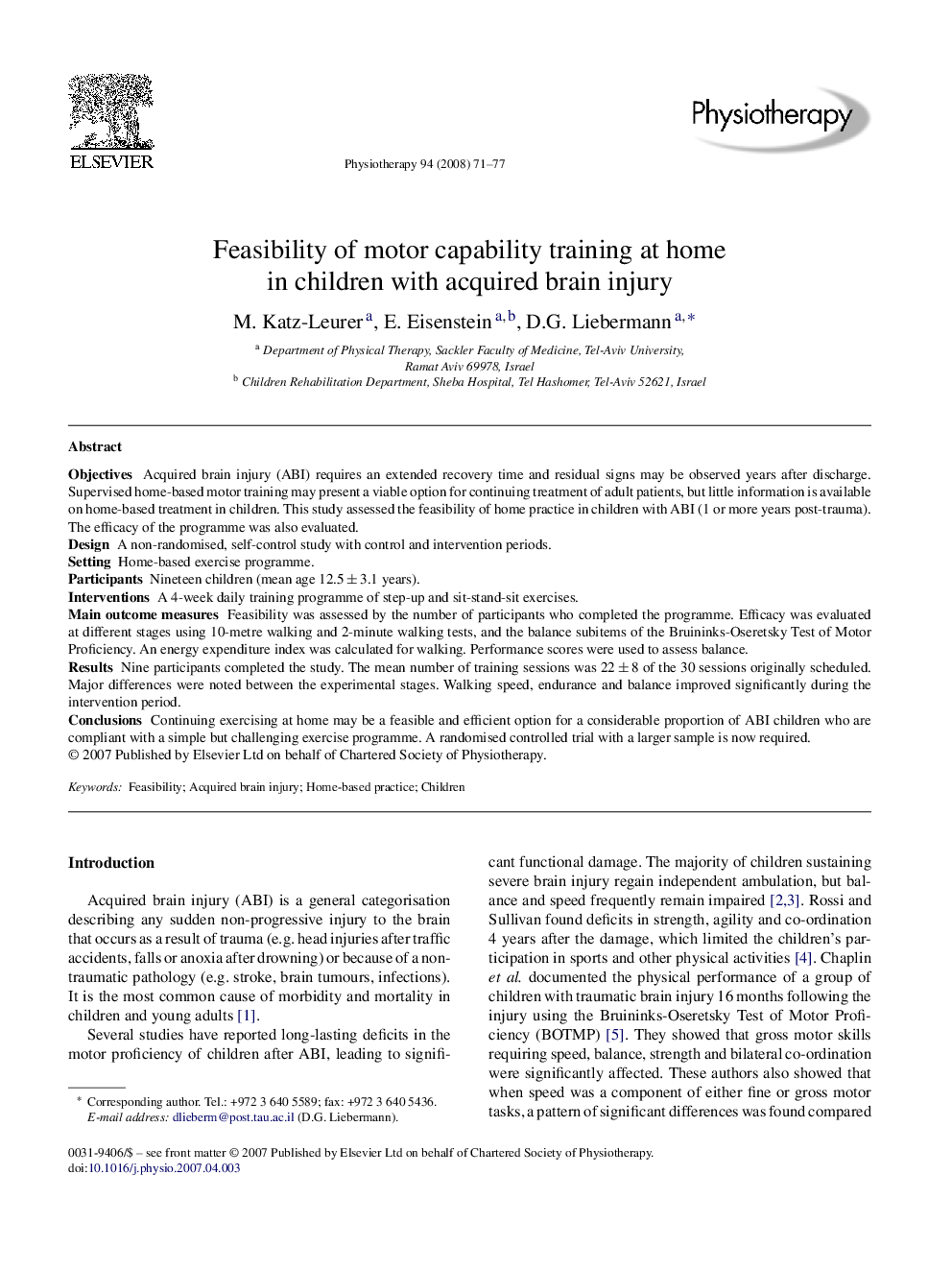| Article ID | Journal | Published Year | Pages | File Type |
|---|---|---|---|---|
| 2627458 | Physiotherapy | 2008 | 7 Pages |
ObjectivesAcquired brain injury (ABI) requires an extended recovery time and residual signs may be observed years after discharge. Supervised home-based motor training may present a viable option for continuing treatment of adult patients, but little information is available on home-based treatment in children. This study assessed the feasibility of home practice in children with ABI (1 or more years post-trauma). The efficacy of the programme was also evaluated.DesignA non-randomised, self-control study with control and intervention periods.SettingHome-based exercise programme.ParticipantsNineteen children (mean age 12.5 ± 3.1 years).InterventionsA 4-week daily training programme of step-up and sit-stand-sit exercises.Main outcome measuresFeasibility was assessed by the number of participants who completed the programme. Efficacy was evaluated at different stages using 10-metre walking and 2-minute walking tests, and the balance subitems of the Bruininks-Oseretsky Test of Motor Proficiency. An energy expenditure index was calculated for walking. Performance scores were used to assess balance.ResultsNine participants completed the study. The mean number of training sessions was 22 ± 8 of the 30 sessions originally scheduled. Major differences were noted between the experimental stages. Walking speed, endurance and balance improved significantly during the intervention period.ConclusionsContinuing exercising at home may be a feasible and efficient option for a considerable proportion of ABI children who are compliant with a simple but challenging exercise programme. A randomised controlled trial with a larger sample is now required.
